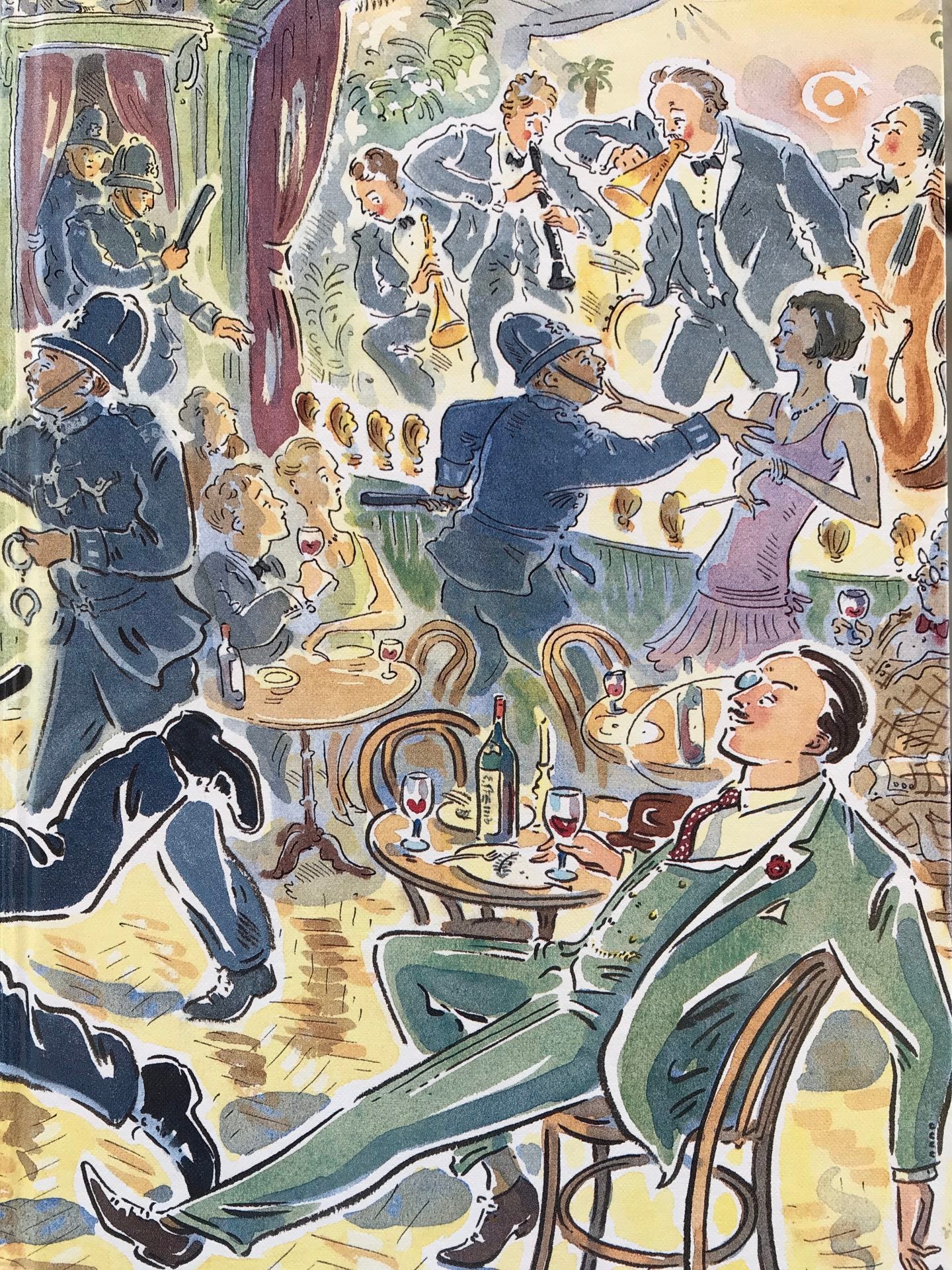Come Read Wodehouse With Me!
Time for a bit of the old shameless self-promotion
Anyone who’s known me for a long, long time knows that I have two white whales remaining in my life: 1) to get paid to teach the work of P.G. Wodehouse, and 2) to finish writing the novel that owes a heavy debt to the work of P.G. Wodehouse. The latter is slow going and will happen in time. The former has now never been closer to reality.
It was actually quite close last year and didn’t happen. When I graduated from Circe, I immediately joined their online academy and pitched a class teaching the first level of the Lost Tools of Writing using Wodehouse’s short stories as our source text. Alas, the class never hit the minimum number of students and we cancelled it, surmising that Wodehouse probably didn’t have the same name recognition as the likes of Grimm, Tolkien, and Homer.
Undaunted, I have returned a year later for another lunge at the pudding, and this time, Circe has merged their online academy with Kepler Education. Kepler is, to put it simply, the big leagues. Their online infrastructure is exceedingly robust, and the breadth of subjects and teachers they have available for home educators and lifelong learners is staggering. I am humbled by how eager and welcoming they were to invite me to join their platform and then work with me to offer the classes I want to teach.
To that end, I am thrilled to announce that I will be teaching a class this summer for both high schoolers and adults: Intro to P.G. Wodehouse. Although beloved by Anglophiles and a certain type of reader, Wodehouse remains frustratingly outside the bounds of household namery, which is a great sorrow. He is almost single-handedly responsible for the proliferation of a certain British aesthetic: aristocratic, highly educated, naif. Wodehouse’s Britain bears no resemblance to the Albion of Geoffrey, the loquacious majesty of Shakespeare, or the incisive courts of Austen; it is a place of delightful, endearing fools, whose wit and immersion in the glorious tradition and culture of Britain is matched only by their personal vacuity.
Wodehouse is the grand master of farce. He is second-to-none in constructing stories of eminently impressive irrelevance and low stakes drama that are rendered captivating purely by his personal elegance and creativity as a writer. Viewed objectively, his stories are ridiculous distractions that ask no great questions, offer no great wisdom, and threaten to pollute the microcosmos with petty drama and disproportionate deceptions, answering amoral dilemmas with moral crimes. But one fact remains beyond all of this that inoculates Wodehouse against his putative criticisms: you simply cannot read anything like him.
To be sure, Chesterton possesses a similarly musical command of the English language, and Waugh is a sharper satirist of the same time period, but to read Wodehouse is to be immersed in a kind of warm bath of pure, unrestrained creativity, where no part of your being is left uninvigorated by the inventive brilliance of his storytelling except the eyes that occasionally have to look up from the page.
To be more specific here would shatter the spell before it is woven, and placing a quote out of context would produce the same. To the uninitiated, being told that “you simply must read the way Wodehouse describes an aunt” means nothing and sounds more than a little weird. People in the know, however, understand that there’s almost nothing better than Wodehouse’s many, many descriptions of aunts. My aim is to turn you into one of those people and then, quite frankly, accept your thanks for doing so.
So, the course is set for Summer. I have one module open to students, grades 7 through 12, which will meet on Monday afternoons from 3:30 to 5:00PM, Central Time, and another module for adults that will meet Tuesday nights from 7:15 to 8:45. I know that time is a bit awkward, but it’s to accommodate the bedtimes in my house.
The course is eight weeks long, running June 9th through July 29th, and I am endeavoring not to overthink things. We will read through a selection of stories from the first collection featuring Wodehouse’s most famous characters, Bertie Wooster and his inimitable valet, Jeeves (you have to use the word “inimitable” when describing Jeeves, or the ghost of George V will haunt you). This is meant to be an inexpensive, breezy affair, with short, straightforward reading assignments, weekly live discussions on Zoom, and some (very) light writing to go with it.
My hope, beyond the obvious goal of sharing the joys of Wodehouse with a new audience, is to better acquaint him with the broader classical world in order to be able to use his work in more practical contexts, such as the Lost Tools of Writing, Level One, which I am also on the books to teach in the 2025-2026 school year.
If this sounds at all interesting or potentially entertaining to you, then I humbly ask that you consider signing up, share it with friends, family members, or other people looking for a literature class for themselves or their teenagers in which the subject matter is its own reward. Enrollment is now open, and if you sign up before February 17th, you can use the code EARLY2025 to receive 10% off the course. I hope to see you there. With knobs on.
May our Lord illuminate the righteous path He has laid before each of us and compel us to walk it dutifully and with joy.


